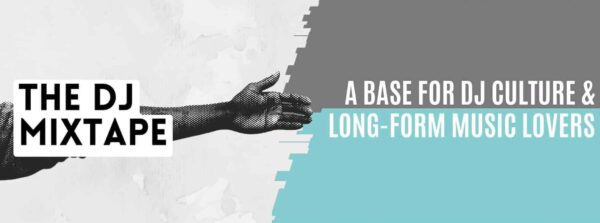As a DJ, your ability to choose the right track to play next is one of the most important skills you can possess. The art of music selection is what sets great DJs apart from the rest. Some DJs have a natural instinct for it, while others prefer to adopt an effective categorisation system. Regardless of your approach, there are several things you can do to ensure you keep the crowd engaged and the party going all night long.

Read the Crowd
One of the most important things you can do as a DJ is to pay attention to how the crowd is responding to the current song. Are they dancing and having a good time, or are they disengaged and looking bored? The key is to read the crowd like a book and adjust your set accordingly. If they’re loving what you’re playing, try to find something similar to keep the party going. If they’re not feeling it, switch things up and experiment with a new genre or tempo to get them back in the zone.

Know Your Music
Another important aspect of selecting the right track is to familiarize yourself with a wide variety of genres and artists. This will allow you to mix and match songs in creative ways that will keep the crowd engaged. Make sure to stay up-to-date on new releases and trends in your style or genre. Here are some tips for expanding your music knowledge:
1. Listen to Music Constantly
The first step to knowing your music is to listen to it constantly. Make it a habit to listen to music throughout your day, whether it’s on your commute, at the gym, or while doing chores around the house. This will help you stay up-to-date on new releases and trends in your genre.
2. Attend Live Shows and Festivals
Attending live shows and festivals is an excellent way to discover new music and expand your knowledge of different genres. You can see how other DJs mix and blend tracks, and get a feel for what works on the dance floor.
3. Collaborate with Other DJs
Collaborating with other DJs is a great way to learn new techniques and expand your knowledge of different genres. You can share music with each other and learn how to incorporate different styles into your own sets.
Organise Your Music
To help you quickly find the right track, it’s essential to organise your music. There are several ways to do this, such as by genre, artist, or BPM. Many DJs use software or platforms like Rekordbox, Serato, or Traktor to manage their music libraries. Here are some tips for organising your music:
1. Use a Consistent Naming Convention
Using a consistent naming convention for your tracks can make it easier to find what you’re looking for. For example, you could use the format “Artist – Track Title (Remix),” which would allow you to quickly identify the artist and title of the track.
2. Categorise Your Music
Categorising your music by genre, artist, or BPM can also make it easier to find the right track. You can create playlists or folders for different genres or moods, which will help you quickly find the right track for the moment.

3. Tag Your Music
Tagging your music with relevant keywords can also make it easier to find the right track. For example, you could tag tracks with keywords like “uplifting,” “dark,” or “funky,” which would allow you to quickly filter your library by mood or style. It’s also important to tag your collection with key so you can identify music the will gel harmonically.
Check out our guide to harmonic mixing here:
We’ve put together a table of possible categorisation types for your DJ collection.
| Category | Description |
| Genre | Categorising music by genre allows DJs to quickly find and play tracks that fit within a particular style or sound. |
| Decades | Separating music by decade can help DJs create themed sets and cater to a specific crowd. |
| Mood | Categorising music by mood, such as happy, sad, or mellow, can help DJs create a certain atmosphere on the dancefloor. |
| Vocal vs. Instrumental | This categorisation is helpful for DJs who want to mix tracks with vocals and instrumental breaks, or for those who want to avoid playing songs with vocals altogether. |
| Tempo | Sorting music by tempo can help DJs mix seamlessly by matching the BPMs of tracks. |
| Key | Organising music by key can help DJs create smooth harmonic transitions between songs. |
| Chart vs. Classics | Separating popular chart hits from timeless classics can help DJs cater to different age groups and musical tastes. |
| Remixes | This categorisation is helpful for DJs who want to play a specific remix of a song or keep track of the different remixes they have in their collection. |
| Country of Origin | Sorting music by country of origin can help DJs create culturally diverse sets and cater to specific ethnic groups. |
| Era | Categorising music by era can help DJs create themed sets that take listeners on a journey through music history. |
| Artist | This categorisation is helpful for DJs who want to quickly find and play tracks from their favourite artists. |
| Instrumentation | Sorting music by instrumentation, such as tracks with heavy guitar riffs or those with prominent brass sections, can help DJs create a certain sound or mood. |
| Energy Level | Categorising music by energy level can help DJs build sets with gradual ebbs and flows of intensity, creating a dynamic dancefloor experience. |
| Time of the Night | Separating music by the time of the night, such as early evening or late night, can help DJs choose appropriate tracks for the mood and energy level of the crowd. |
| DJ Tool | Organising music by whether it has a certain tool, such as a clean intro or outro, or an acapella version, can help DJs plan and execute their mixes. |

Stay Up-to-Date
As a DJ, staying up to date with new releases, trends, and emerging artists is crucial. It not only helps you keep your sets fresh and engaging, but it also allows you to stand out in a crowded field of talented DJs.
Here are some great platforms to discover new music:
| Platform | Description |
|---|---|
| Resident Advisor | A global platform that covers electronic music news, reviews, and events. It features a comprehensive release calendar that includes upcoming albums, EPs, and singles across various genres. |
| Pitchfork | A music publication that covers a wide range of genres, including electronic music. It features in-depth reviews of new releases, as well as interviews and features with artists. |
| Boomkat | A UK-based online record store that specializes in underground and experimental electronic music. Its “Recommended” section highlights new releases that are deemed essential by the site’s staff. |
| Phonica Records | Another UK-based online record store that specializes in electronic music, with a focus on house and techno. Its “New Releases” section features hand-picked selections from the staff. |
| XLR8R | An online magazine that covers electronic music, as well as other genres like hip-hop and indie. Its “New Music” section features a mix of tracks, EPs, and albums from up-and-coming artists. |
| Juno Records | A UK-based online record store that features a large selection of electronic music across various genres. Its “New Releases” section includes recommendations from the staff, as well as top-sellers and pre-orders. |
| Mixmag | A UK-based music magazine that covers electronic music news, reviews, and features. Its “New Music” section highlights the latest tracks and releases across various genres. |
| Bandcamp | An online music platform that allows artists to sell their music directly to fans. Its “New & Notable” section features the latest releases across various genres, including electronic. |
| Traxsource | An online music store that specializes in house, techno, and other dance music genres. Its “New Releases” section features the latest tracks and EPs from established and up-and-coming artists. |

How do other DJs choose the right track?
One of the best ways to improve your track selection skills is to learn from other DJs. Whether you attend live performances, watch YouTube tutorials or listen to podcasts, there are plenty of opportunities to gain new insights and ideas.
One useful technique is to watch other DJs and take note of how they transition between tracks. Pay attention to the songs they choose, the order in which they play them, and how they blend them together. You may pick up some new techniques that you can incorporate into your own sets.
Another approach is to listen to podcasts or watch interviews with DJs. Many experienced DJs are happy to share their knowledge and offer tips on track selection, mixing, and other aspects of DJing. You can learn a lot by listening to their experiences and hearing about the challenges they’ve faced in their careers.

Final Thoughts
Choosing the right track to play next is one of the most important skills a DJ can possess. By reading the crowd, organising your music library, and staying up-to-date with new releases and trends, you can keep the party in motion. And by learning from other DJs, you can gain new insights and ideas that will help you take your DJing skills to the next level. So keep experimenting, keep learning, and keep the music flowing!
If you enjoyed our post on How to Choose the Right Track to Play Next in Your DJ Set, then check out our blog on mastering the art of B2B DJing here”

F.A.Q’s
Q: How can I become better at track selection?
A: To become better at track selection, you should pay attention to how the crowd responds to the current song and learn to read the room. Familiarize yourself with a wide variety of genres and artists, and organize your music library to help you quickly find the right track. Stay up-to-date with new releases and trends, and learn from other DJs by attending live performances, watching tutorials, and listening to podcasts.
Q: How do I know when to change the tempo or genre of the music?
A: You should change the tempo or genre of the music when you notice that the crowd is losing interest or becoming disengaged. Try experimenting with different tempos and genres to see what works best, and pay attention to how the crowd responds.
Q: What software or platforms can I use to organize my music library?
A: There are several software and platforms available for organizing your music library, such as Rekordbox, Serato, and Traktor. These platforms allow you to categorize your music by genre, artist, or BPM, making it easier to find the right track when you need it.
Q: How can I stay up-to-date with new releases and trends?
A: You can stay up-to-date with new releases and trends by following record labels, music blogs, and websites like Boomkat Records. These resources will keep you informed about new music releases and trends in your style or genre.
Q: How can I learn from other DJs?
A: You can learn from other DJs by attending live performances, watching tutorials, and listening to podcasts. Pay attention to how other DJs transition between tracks and how they blend them together, and listen to their experiences and tips on track selection, mixing, and other aspects of DJing.






